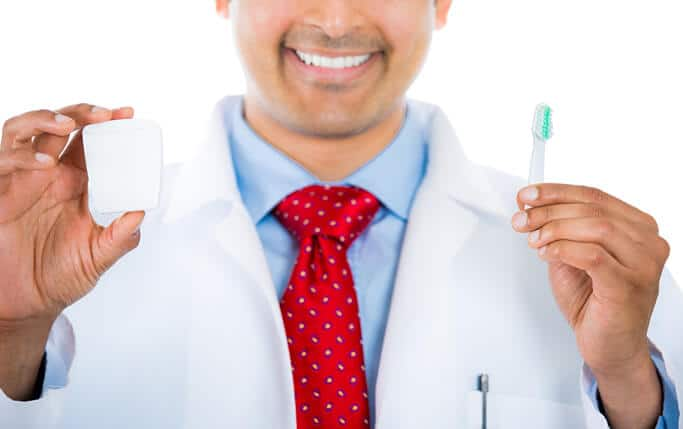One way to improve the appearance of your smile and give your self-esteem a boost is to get braces. Braces straighten teeth that are crooked and adjust a bite that's misaligned. Although braces usually do more good than harm in the long run, they do present their own set of challenges.
Keeping your teeth clean can be tricky with braces. While you might not need to use a special toothbrush for braces, you might need to increase how frequently you brush and add a few oral care tools to your routine.
Be Extra Diligent About Oral Hygiene With Braces
Wearing braces, particularly metal braces, can make it easier for food to get stuck on or between the teeth. Pieces of food trapped in the mouth can speed up the formation of plaque, which increases the risk of tooth decay. The U.S. Food and Drug Administration stresses the importance of keeping your teeth clean when you have braces by explaining that not doing so can limit the effectiveness of orthodontic treatment and require that you wear braces for a longer period of time.
When you have braces, you might find that you need to brush after each meal or after having a snack, rather than just twice a day. It's also important to floss when you have braces to remove anything that gets lodged between your teeth or in the space between the tooth and the archwire.
How to Clean Your Teeth With Braces
In many ways, brushing your teeth with braces is going to be similar to the way you brushed your teeth before you had braces. The ideal toothbrush for braces will have soft bristles and a small head. It should feel comfortable in your hand and fit in your mouth without trouble. You'll also want to use a fluoride toothpaste to protect against cavities.
Place a small amount of toothpaste on your toothbrush, then hold the brush against the back of the teeth at a 45-degree angle. Use small circular movements to clean one or two teeth at a time. Once you've cleaned every tooth, repeat the motion on the front of the teeth.
Since you will likely clean your teeth more often when you have braces, you might find that you need to replace your toothbrush more frequently. It's time for a new toothbrush when the bristles on your current one are worn out or starting to lean to the sides.
The Braces Toolbox
Although having braces doesn't mean that you need to run out and buy a special toothbrush, it might mean that you should consider investing in a few new tools to help keep your teeth and gums clean. The Indian Dental Association notes that it is important to keep the area under the bridges clean, as this is where your natural teeth are exposed. You may trap food and plaque there. Floss threaders may help guide the floss under the bridge. You can also use an interproximal brush (also called an interdental brush), which is a short, bristled tool that can reach under the archwire or between the brackets and remove trapped bits of food. You can also use an interproximal brush to clean between your teeth.
For those times when you can't brush after eating, rinse your mouth with water. Water won't scrub the surface of your teeth, but it can help rinse away particles of food. According to Mouth Healthy the water cleans your mouth with every sip, it washes away leftover food and residue that cavity-causing bacteria are looking for, it also dilutes the acids produced by the bacteria in your mouth. Therefore, it can reduce the chances of developing tooth decay.
If you have any questions about how to keep your teeth as clean as possible when you have braces, your dentist or orthodontist will be able to answer them. They can recommend an oral care routine that works with your schedule, lowers your risk of developing tooth decay and helps you achieve the healthy and beautiful smile you're looking for.






